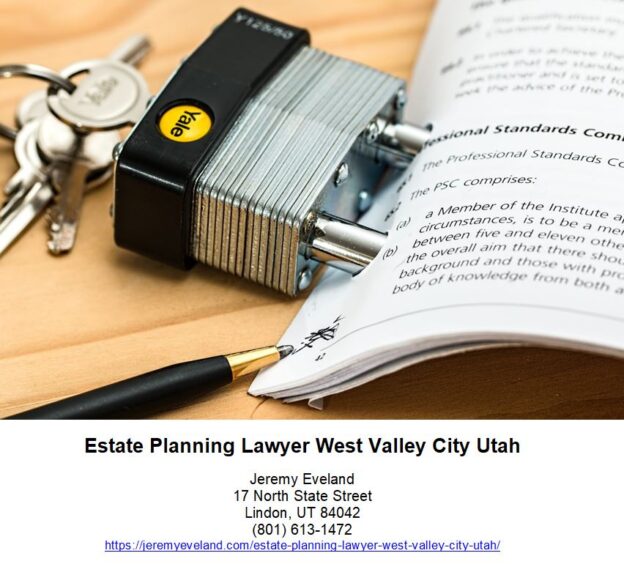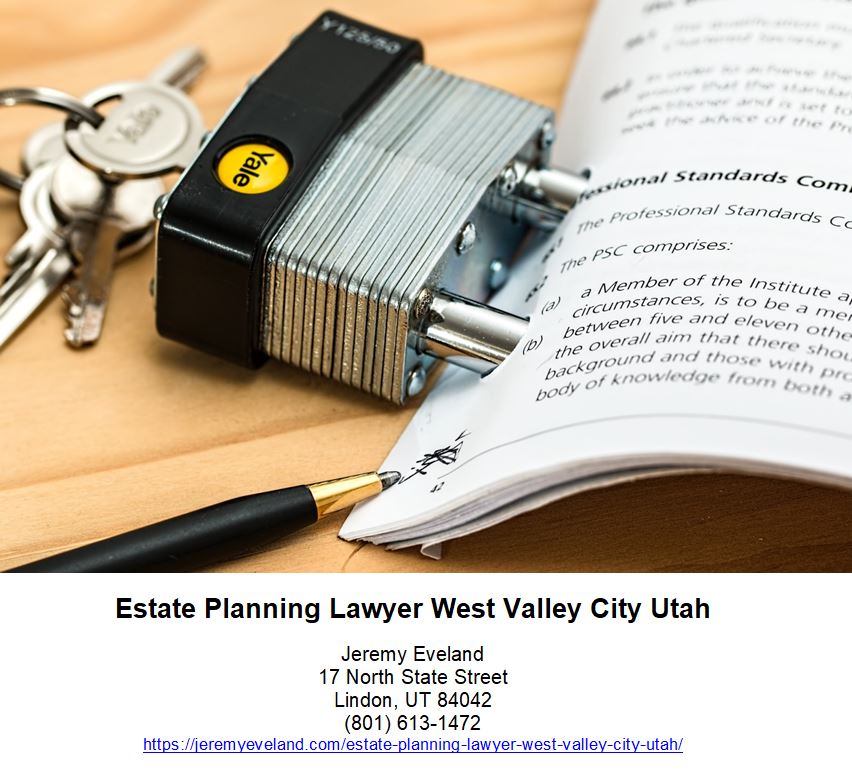-
Table of Contents
The Benefits of Hiring a Business Lawyer in Provo, Utah
Hiring a business lawyer in Provo, Utah can be a great asset to any business. A business lawyer can provide invaluable legal advice and guidance to help protect your business from potential legal issues. Here are some of the benefits of hiring a business lawyer in Provo, Utah:
1. Expertise: A business lawyer in Provo, Utah has the expertise and experience to provide sound legal advice and guidance. They understand the complexities of business law and can help you navigate the legal landscape.
2. Cost Savings: Hiring a business lawyer in Provo, Utah can save you money in the long run. A business lawyer can help you avoid costly legal mistakes and ensure that your business is in compliance with all applicable laws.
3. Risk Management: A business lawyer in Provo, Utah can help you manage risk and protect your business from potential legal issues. They can help you draft contracts, review documents, and provide advice on how to handle potential legal issues.
4. Negotiation: A business lawyer in Provo, Utah can help you negotiate contracts and other legal documents. They can help you get the best deal possible and ensure that your interests are protected.
5. Representation: A business lawyer in Provo, Utah can represent you in court if necessary. They can provide legal representation and ensure that your rights are protected.
Hiring a business lawyer in Provo, Utah can be a great asset to any business. A business lawyer can provide invaluable legal advice and guidance to help protect your business from potential legal issues. They can help you manage risk, negotiate contracts, and represent you in court if necessary. If you are looking for a business lawyer in Provo, Utah, contact a local law firm today.
How to Choose the Right Business Lawyer in Provo, Utah
Choosing the right business lawyer in Provo, Utah is an important decision for any business. A business lawyer can provide legal advice and representation in a variety of areas, including contract negotiation, business formation, and dispute resolution. When selecting a business lawyer, it is important to consider the lawyer’s experience, qualifications, and reputation.
Experience: When selecting a business lawyer, it is important to consider the lawyer’s experience. Look for a lawyer who has experience in the specific area of law that your business needs. For example, if you are forming a new business, you should look for a lawyer who has experience in business formation.
Qualifications: It is also important to consider the lawyer’s qualifications. Look for a lawyer who is licensed to practice law in Utah and who has experience in the specific area of law that your business needs. Additionally, look for a lawyer who is a member of the Utah State Bar Association.
Reputation: Finally, it is important to consider the lawyer’s reputation. Look for a lawyer who has a good reputation in the legal community and who has a track record of success in the specific area of law that your business needs.
By considering the lawyer’s experience, qualifications, and reputation, you can ensure that you select the right business lawyer in Provo, Utah for your business.
Common Business Law Issues in Provo, Utah
Provo, Utah is a city with a vibrant business community. As such, businesses in Provo must comply with the laws and regulations of the state of Utah. Here are some of the common business law issues that businesses in Provo may encounter:
1. Business Formation: Businesses in Provo must register with the Utah Division of Corporations and Commercial Code. This includes filing the necessary paperwork and paying the required fees. Businesses must also comply with local zoning laws and obtain any necessary permits or licenses.
2. Employment Law: Businesses in Provo must comply with state and federal employment laws. This includes laws related to minimum wage, overtime, discrimination, and other workplace issues.
3. Tax Law: Businesses in Provo must comply with state and federal tax laws. This includes filing the necessary paperwork and paying the required taxes.
4. Contract Law: Businesses in Provo must comply with contract law when entering into agreements with other parties. This includes drafting and executing legally binding contracts that are enforceable in court.
5. Intellectual Property Law: Businesses in Provo must comply with intellectual property laws. This includes registering trademarks, copyrights, and patents.
6. Environmental Law: Businesses in Provo must comply with environmental laws. This includes laws related to air and water pollution, hazardous waste disposal, and other environmental issues.
7. Consumer Protection Law: Businesses in Provo must comply with consumer protection laws. This includes laws related to advertising, pricing, and other consumer issues.
Business Commerce
At the heart of every successful business that employs more than one person is effective personnel management. Whether it is scheduling, payroll, benefits, promotion, or firing, business managers must deal with personnel issues constantly. Even small businesses with fewer than 10 employees face the challenge of routinely managing various employment factors.
Managing employment-related activities, traditionally called human resources, can require a full-time position. With the national recognition of civil rights during the late 1950s and early 1960s, employee rights’ legislation has increased dramatically. From protecting hired help against discrimination to preserving employee privacy, U.S. laws regulate many areas of employment. Business managers must develop defined policies and offer privileges, such as a 30-minute break for meals when an employee works eight hours or more. Even when the working relationship involves a temporary contract-for-hire or a subcontract status, a manager must handle each situation in accordance with national and local laws.
Human resource management (HRM) involves designing and implementing company policies, procedures, and tracking systems in the following areas:
Selection process: employment marketing and advertising; interview process; employment conditions, whether full or part time and travel requirements; résumé review process; etc.
Work time management: personnel records, payroll functions, labor records, benefits management, etc.
Staffing requirements: scheduling, workforce planning, training, education, etc.
Compliance issues: employment laws, safety regulations, employee manuals, financial reporting, etc.
Termination process: employee release procedures, payroll and benefit administration, etc.
Documentation is important when managing workers. Each time an action is taken that involves an employee, there usually must be a record included in the personnel files. U.S. laws require fairness at the workplace, and accurate records establish that employee rights are preserved. Disclosure of company standards and procedures must usually be granted either prior to hiring or shortly thereafter.
Most large companies have departments that handle personnel management. Small companies can outsource human resource management by hiring specialized firms to administer these tasks. Because U.S. laws tend to lean more toward protecting employees, it is important that a manager devotes considerable attention to this element of business.
Hiring Process
Bringing new workers to the company starts with recruitment efforts. A manager places an advertisement, exhibits at job fairs, engages a staffing agency, or otherwise alerts job seekers that a position is available. Companies sometimes hire a headhunter who seeks specific professionals for executive-level or highly specialized positions. The increasingly popular social networking sites, such as LinkedIn, can also be an effective source to reach out to potential employees. Personnel managers then screen applicants to determine the most appropriate candidates to pursue.
Job applicants can undergo various steps in the hiring process. The most common step is for employers to receive an application or résumé. These documents are reviewed in order to select appropriate candidates to interview. There can be just one or several interviews a candidate must go through to become hired. Candidates’ references are typically contacted during the process, including previous employers. In some cases, interviewees are also given skills tests that indicate their ability to perform the job. Some businesses require newly hired employees to work through a probation period before being eligible for permanent employment. Previous training and/or education listed on an application or résumé gives the personnel manager standard criteria to use when screening potential employees. Experience in the position is another requirement used to screen applicants.
Employment
Once an offer of employment has been accepted, the personnel manager guides the new worker through an orientation process, during which the employee will learn about the company policies, standards and expectations, benefit offerings, and workplace conditions and procedures. Many businesses distribute job descriptions that clearly define an employee’s responsibilities and obligations. In some industries, including health care, there are regulations requiring employees to sign documents acknowledging that they have received certain information prior to working for the company. Once oriented, the new hire must abide by all company policies throughout employment.
Human resource professionals are educated in the following areas:
Workforce diversity: Maintaining fairness and equality among job groups and ensuring an absence of discrimination at work are vital responsibilities. Managers must deal with issues like an aging workforce or different cultural behaviors and values. Mid-size to large U.S. companies are required to educate their workforce about diversity in the workplace.
Workplace safety: Also important is providing a safe environment for workers through education, ergonomics, and prevention standards. Policies on drug and alcohol consumption, protective equipment use, workplace violence, and hazardous communications, among others, are required under federal and state guidelines.
Communications and record-keeping: Certain disclosures, announcements, and warnings are required in several industries. Human resources managers also must record disciplinary actions, performance evaluations, termination activities, work time, payroll and benefit earnings, and hiring documents.
Employee performance and retention: Companies develop programs to measure and reward employee performance through productivity standards. In addition, incentive and benefit programs enable businesses to keep the high-producing employees.
There are two broad categories of employment: at-will and contractual. At-will employment means either the employer or employee can terminate the employment status at any time, often with little notice of termination. The employer retains control of the employee during work hours. Labor expenses are paid on a regular basis and can increase or decrease in exchange for a long-term commitment by the worker.
On the other hand, contractual employment is in effect when the worker enters an agreement for a defined period at a specified payment. Labor expenses can be paid regularly or at specified intervals. When companies engage workers who are considered to be independent subcontractors, control is more limited and the subcontractor is therefore responsible for managing his or her duties and reporting job-related income to authorities.
Praise, Encouragement, and Discipline
During the course of employment, a personnel manager may need to coach, punish, and praise a worker in order to meet the company’s productivity standards. In multilayered organizations, a supervisor will typically provide feedback to the employee through a formal process, with the human resources department managing the process. In smaller operations, these functions may be done informally by the owner.
Praise involves officially recognizing an employee for job performance or other accomplishments. It can be delivered from an executive, a supervisor, or a personnel manager. Praise received can be a very important factor in developing a person’s career; therefore, a manager should take offering praise and recognition seriously because she or he can influence the future of a number of employees. Experts note that praise works as both a reward and a motivator. How it is delivered is important because some people like public recognition and others prefer privacy.
When a manager recognizes achievement, it can have an immediate impact, so the timing of praise delivery is also important. Giving praise can also help prevent hurt feelings if a worker requires discipline. Use praise only when it is truly warranted or remarkable; avoid constant recognition, as that may dilute its effectiveness.
Encouragement is viewed as the manager’s best tool for increased employee performance. By delivering positive, meaningful, and authentic support and positive reinforcement, a manager can maintain a high level of productivity. From coaching individuals to hosting off-site gatherings, encouragement can take different forms. Especially important is giving leaders encouragement and positive feedback; having these workers encourage others can help the manager out immensely. Experts remind managers that, like praise or recognition, encouragement should be specific, timely, and delivered appropriately.
Discipline is the most difficult action to carry out, say most managers. The fairness standards for employee discipline are as strict as any business-related activity. Business law attorneys agree that documentation rules the day, and advise managers to clearly define and discuss activities that lead to employee discipline. The first step is to have a written discipline policy, sharing its information with all employees. The next step is to educate supervisors about handling employee discipline. Administering discipline should be close to a last resort, and regulations require notification of the employee of the offense committed and reasons for discipline. Human resource professionals advise managers to offer the employee an opportunity to remedy or correct the offending activity.
Employee Termination
When managers decide to terminate an employee, they carry a risk of legal action being taken against them. Contracted employees or subcontractors can sue under breach of contract or wrongful termination provisions if they can prove the firing was contractually protected.
Though at-will employment arrangements are more flexible, there are rules preventing discriminatory termination of a protected class of workers or defamatory comments made by management. Firing an employee in retaliation for some legally protected action is prohibited, along with detailing private information related to the dismissal. As with discipline, the best defense against unfair treatment is clear documentation.
Experts note that firing for business purposes is legitimate. If termination is not as a result of a business decision, then management must prove that, based on the offense, the “punishment fits the crime.” Was the offending activity justified? Does the employee have a reasonable explanation for her or his behavior? Is the decision to terminate premature? These and similar questions should be answered prior to termination, or the action could be seen by a third-party as being an unfair dismissal.
Managers not only face challenges from terminated employees, the business effects of dismissal echo beyond the loss of the employee. Diminished productivity could result, as well as increased costs of hiring and training a replacement. Therefore, a manager should exhaust every option before firing an employee unless the person has violated an important company policy.
By understanding and complying with the applicable laws and regulations, businesses in Provo can ensure that they are operating legally and ethically.
Understanding the Different Types of Business Law Services in Provo, Utah
Business law services in Provo, Utah, are designed to help businesses of all sizes navigate the legal complexities of operating in the state. From forming a business entity to protecting intellectual property, there are a variety of services available to help businesses succeed. Understanding the different types of business law services available in Provo can help business owners make informed decisions about their legal needs.
Formation of Business Entities: Businesses in Provo, Utah, can choose from a variety of business entities, including corporations, limited liability companies (LLCs), and partnerships. Business law services can help business owners understand the advantages and disadvantages of each entity type and provide guidance on the formation process.
Contracts: Businesses in Provo, Utah, must enter into contracts with customers, vendors, and other parties. Business law services can help business owners draft, review, and negotiate contracts to ensure that their interests are protected.
Intellectual Property: Businesses in Provo, Utah, may need to protect their intellectual property, such as trademarks, copyrights, and patents. Business law services can help business owners understand the process of registering and protecting their intellectual property.
Employment Law: Businesses in Provo, Utah, must comply with state and federal employment laws. Business law services can help business owners understand their obligations and ensure that they are in compliance with the law.
Tax Law: Businesses in Provo, Utah, must comply with state and federal tax laws. Business law services can help business owners understand their tax obligations and ensure that they are in compliance with the law.
Business Litigation: Businesses in Provo, Utah, may need to pursue or defend against legal action. Business law services can help business owners understand their rights and obligations and provide guidance on the litigation process.
Business law services in Provo, Utah, can help businesses of all sizes navigate the legal complexities of operating in the state. Understanding the different types of services available can help business owners make informed decisions about their legal needs.
The Advantages of Working with a Business Lawyer in Provo, Utah
Working with a business lawyer in Provo, Utah can provide a number of advantages to business owners. A business lawyer can provide legal advice and guidance to help business owners make informed decisions and protect their interests. Here are some of the advantages of working with a business lawyer in Provo, Utah.
1. Knowledge of Local Laws: A business lawyer in Provo, Utah is familiar with the local laws and regulations that may affect your business. This knowledge can help you make sure that your business is compliant with all applicable laws and regulations.
2. Expertise in Business Transactions: A business lawyer in Provo, Utah can provide expertise in business transactions such as contracts, leases, and other agreements. This expertise can help you ensure that your business transactions are legally sound and protect your interests.
3. Representation in Court: A business lawyer in Provo, Utah can provide representation in court if your business is involved in a dispute or lawsuit. This representation can help you protect your interests and ensure that your rights are respected.
4. Advice on Business Structures: A business lawyer in Provo, Utah can provide advice on the best business structure for your business. This advice can help you choose the structure that best suits your needs and goals.
5. Assistance with Regulatory Compliance: A business lawyer in Provo, Utah can provide assistance with regulatory compliance. This assistance can help you ensure that your business is compliant with all applicable laws and regulations.
Working with a business lawyer in Provo, Utah can provide a number of advantages to business owners. A business lawyer can provide legal advice and guidance to help business owners make informed decisions and protect their interests. By working with a business lawyer in Provo, Utah, business owners can benefit from the knowledge of local laws, expertise in business transactions, representation in court, advice on business structures, and assistance with regulatory compliance.
Areas We Serve
We serve individuals and businesses in the following locations:
Salt Lake City Utah
West Valley City Utah
Provo Utah
West Jordan Utah
Orem Utah
Sandy Utah
Ogden Utah
St. George Utah
Layton Utah
South Jordan Utah
Lehi Utah
Millcreek Utah
Taylorsville Utah
Logan Utah
Murray Utah
Draper Utah
Bountiful Utah
Riverton Utah
Herriman Utah
Spanish Fork Utah
Roy Utah
Pleasant Grove Utah
Kearns Utah
Tooele Utah
Cottonwood Heights Utah
Midvale Utah
Springville Utah
Eagle Mountain Utah
Cedar City Utah
Kaysville Utah
Clearfield Utah
Holladay Utah
American Fork Utah
Syracuse Utah
Saratoga Springs Utah
Magna Utah
Washington Utah
South Salt Lake Utah
Farmington Utah
Clinton Utah
North Salt Lake Utah
Payson Utah
North Ogden Utah
Brigham City Utah
Highland Utah
Centerville Utah
Hurricane Utah
South Ogden Utah
Heber Utah
West Haven Utah
Bluffdale Utah
Santaquin Utah
Smithfield Utah
Woods Cross Utah
Grantsville Utah
Lindon Utah
North Logan Utah
West Point Utah
Vernal Utah
Alpine Utah
Cedar Hills Utah
Pleasant View Utah
Mapleton Utah
Stansbury Par Utah
Washington Terrace Utah
Riverdale Utah
Hooper Utah
Tremonton Utah
Ivins Utah
Park City Utah
Price Utah
Hyrum Utah
Summit Park Utah
Salem Utah
Richfield Utah
Santa Clara Utah
Providence Utah
South Weber Utah
Vineyard Utah
Ephraim Utah
Roosevelt Utah
Farr West Utah
Plain City Utah
Nibley Utah
Enoch Utah
Harrisville Utah
Snyderville Utah
Fruit Heights Utah
Nephi Utah
White City Utah
West Bountiful Utah
Sunset Utah
Moab Utah
Midway Utah
Perry Utah
Kanab Utah
Hyde Park Utah
Silver Summit Utah
La Verkin Utah
Morgan Utah
Business Lawyer Provo Utah Consultation
When you need help from a Business Lawyer near Provo Utah call Jeremy D. Eveland, MBA, JD (801) 613-1472 for a consultation.
Jeremy Eveland
17 North State Street
Lindon UT 84042
(801) 613-1472
Related Posts
Business Lawyer West Valley City Utah
Business Succession Lawyer Eagle Mountain Utah
Estate Planning Lawyer West Jordan Utah
Business Acquisition Lawyer Sandy Utah
Estate Planning Lawyer Orem Utah
Legal Requirements To Form A Trust
[geocentric_weather id=”b6e1f4da-d96d-4229-bb2f-fc6b15899f98″]
[geocentric_about id=”b6e1f4da-d96d-4229-bb2f-fc6b15899f98″]
[geocentric_neighborhoods id=”b6e1f4da-d96d-4229-bb2f-fc6b15899f98″]
[geocentric_thingstodo id=”b6e1f4da-d96d-4229-bb2f-fc6b15899f98″]
[geocentric_busstops id=”b6e1f4da-d96d-4229-bb2f-fc6b15899f98″]
[geocentric_mapembed id=”b6e1f4da-d96d-4229-bb2f-fc6b15899f98″]
[geocentric_drivingdirections id=”b6e1f4da-d96d-4229-bb2f-fc6b15899f98″]
[geocentric_reviews id=”b6e1f4da-d96d-4229-bb2f-fc6b15899f98″]











